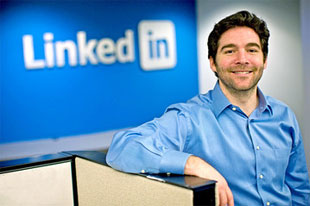 There are some companies that encourage employees to have a healthy work-life balance. A happy worker, so goes the thinking, is a productive worker.Yet, with the rise of social media, there is more personal information about individuals available on the web than ever before.As a result, the lines between work, and the rest of life have never been more blurred.
There are some companies that encourage employees to have a healthy work-life balance. A happy worker, so goes the thinking, is a productive worker.Yet, with the rise of social media, there is more personal information about individuals available on the web than ever before.As a result, the lines between work, and the rest of life have never been more blurred.
This muddling of professional and personal identities can be disruptive in the workplace.“Social media have had an enormous impact on businesses, from a product perspective and also, in some cases, from a performance management perspective,” says Sue Murphy, association manager, of the US National Human Resources Association.
At the most basic level, the HR department needs to make sure employees are not spending all day on social networking sites and frittering their work hours away tweeting and playing games.
“The amount of time people are spending on the internet at work has increased, so from a performance management perspective we need to be more diligent,” says Ms Murphy.
Even if social media facilities are not being abused in their overuse at work, there is a question over when and whether even sparing use could be deemed inappropriate.Stories of employees and managers misusing social media on the job have become common.But for the first time, authorities are getting involved in deciding whether workers or bosses are in the right. Last month, the US National Labor Relations Board weighed in after an employee was fired for a Facebook posting deemed tasteless by management.
Michael Patrick O’Brien, an employment attorney with law firm Jones Waldo, says this incident was a wake-up call for employers. “Get legal advice before you fire someone because he or she has posted comments online or communicated with co-workers about working conditions,” he says, adding it was important for companies to “update social media policies”.
Social media can also prove an asset, and a liability for recruitment. Increasingly, says Ms Murphy, companies are posting job listings on social sites such as LinkedIn, instead of on job sites such as Monster.com.
“It’s helping to cut their recruiting costs, and to find more suitable candidates,” says Ms Murphy, adding that Craigslist, the online classified advertising site, is not an ideal recruiting venue. “There are some negative sides with some of the Craigslist postings.”But encouraging employees to use social media to share a job listing among friends and social networks can be useful. “It helps you get your message out,” she says.
“There are millions of people on Facebook and Twitter every day. When I started in HR, you would place an ad on Wednesday, it would be in the paper on Thursday, and it would be a week before you had CVs,” says Ms Murphy. “Now it only takes seconds.” But again, with so much data publicly available, there is a risk employers will focus on personal information when they make hiring decisions, whether it is relevant to work or not.
“The downside of using social media from a networking perspective is that we don’t have guidelines for regulating what employers are getting from these social sites,” says Ms Murphy.
“If there are photos of them partying, or if they see people that seem to be obese, they are making decisions based on what they see on these sites, which leaves the door open to discriminatory practices.”
Even after employees leave the organisation, social media can be integral to an ongoing relationship with the company.
“Employers use it to track their alumni in the press,” says Martin Murtland, managing director for PR and Corporate Communications solutions at Dow Jones, speaking about proprietary software that monitors mentions of individuals and companies across media channels.
“If there’s someone you’re particularly interested in, this is a way to see what they’re saying about the company.”
Yet, without guidelines, social media in the workplace can go awry. “You have to be careful about maintaining … neutrality,” says Ms Murphy.
She recounts an incident where a supervisor went on to Facebook, downloaded a picture of a male employee who was out with a friend, then sent it out to colleagues saying “look at these two gay boys”.
Nothing was done to the supervisor, much to the chagrin of the employee. “His supervisor created a hostile work environment,” she says.
The use of common sense is important in HR policies on social media. “Be smart with what you’re saying, be aware of who you’re reaching, and if you’re going to go looking, be prepared for what you’re going to find,” says Ms Murphy.”
 Turkish Labor Law
Turkish Labor Law


